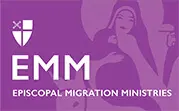Wow!
This section of the Acts of the Apostles is fast-paced enough for a remake of “Indiana Jones.” St. Paul seems to be in constant motion, moving from one place to another, encountering one challenge after another; and — with the characteristic aplomb that Luke ascribes to Paul – the Apostle to the Gentiles talks his way out of one tight spot after another. All it lacks is a new Harrison Ford, and the cameras could be ready to roll.
And, like a lot of adventures, much trouble could have been avoided had St. Paul not been so headstrong. As you will recall, at the beginning of Chapter 21, Paul was warned – by the prophet Agabus, no less – that he should avoid tangling with the Jerusalem authorities: “Thus says the Holy Spirt,” declared Agabus, who then went on to perform a little pantomime to show what would happen to Paul if he persisted.
Suffice it to say that Paul paid no attention to Agabus, nor anyone else: he was on a mission from God, and nothing was going to get in his way.
Of course, it helped a lot that St. Paul was a person of privilege, learned in the law, and with enough financial means and acumen to accomplish what he wanted. And to top it all, he had won the birth lottery of his time: he was born a citizen of the Roman Empire, together with all the courtesies, advantages, and privileges that exalted status afforded. This part of the book of Acts is essentially the story of Paul using that privilege to preach to ever-grander audiences – from Caesarea, to Jerusalem, to Rome; to religious authorities, to civil authorities from tribunes to governors such as Felix and Festus, to King Agrippa and Bernice, and eventually – as we will see – to the court of the Emperor himself.
Paul was a person of privilege, and he used that privilege not for his own aggrandizement, but in service to the Good News of Jesus Christ.
In considering these chapters from the Acts of the Apostles, reflecting on them in the light of “our call as Christians to welcome the stranger” and to be active in “the movement for immigrant and refugee welcome,” I found myself coming back to the small vignette in Acts 22:26-28: “The tribune came and asked Paul, ‘Tell me, are you a Roman citizen?’ And he said, ‘Yes.’ The tribune answered, ‘It cost me a large sum of money to get my citizenship.’ Paul said, ‘But I was born a citizen.’”
Immigrants and refugees come to our country, often at great peril and great cost –financially and otherwise – to themselves, their families, and their communities. They are the “strangers” we are called to welcome. And for those of us who are privileged in so many ways, including having the advantages of being “born a citizen,” like St. Paul, we can learn from his example:
Paul could simply have enjoyed the benefits of his privilege, but, instead, he put that privilege at the service of the Gospel.
How might we put the privilege we have at the service of the Good News, and particularly in service to “welcoming the stranger”? It could include refusing to be silent: using our voices and the rights we have to give voice to the voiceless, standing up against unjust laws and actions. It could include giving our time, treasure, and talent, to the work of the church’s Episcopal Migration Ministries. It could include local actions, volunteering, and giving a helping hand to “the stranger,” where ever we encounter new neighbors. It certainly should include praying for and working with others who are actively engaged in such important ministries.
St. Paul was a restless soul, unwilling to rest placidly while the call of the Good News of Jesus beckoned. In the final chapters of this week’s readings, Paul has even faced exile and shipwreck and near starvation – all in pursuit of that call. The readings end with these simple words: “And so it was that all were brought safely to land.” May we have such courage and determination, as we welcome immigrants and refugees in our own time, from our places of privilege, and so proclaim the Gospel.




